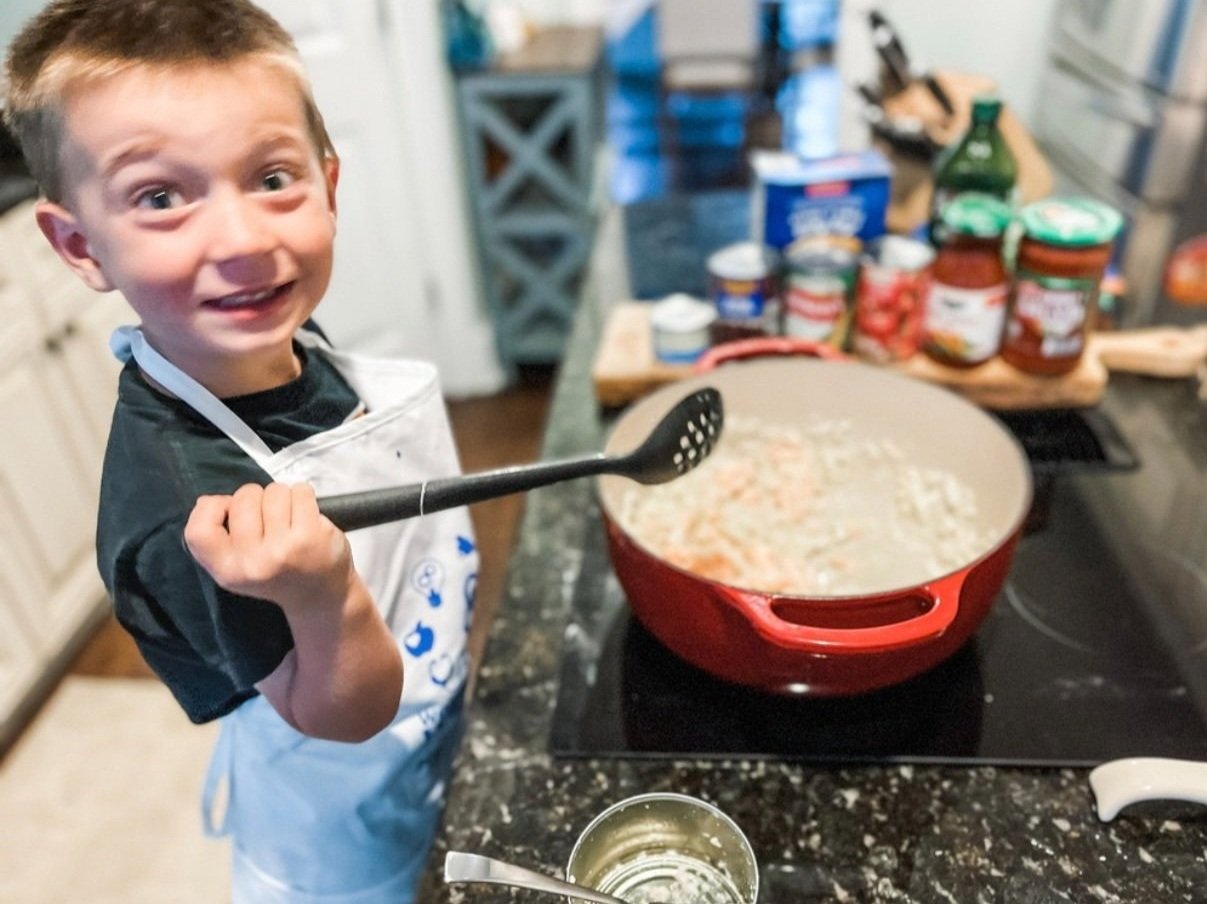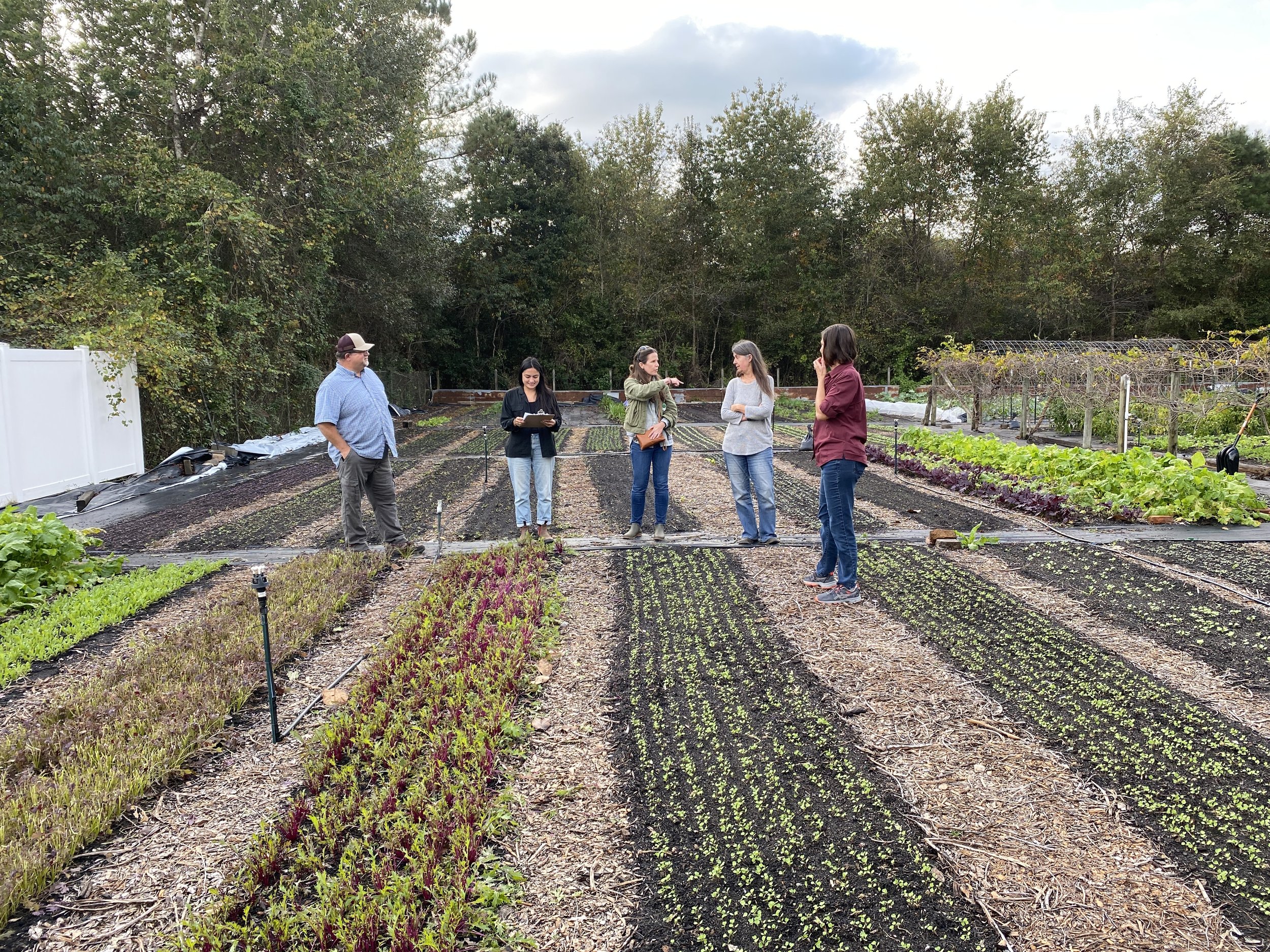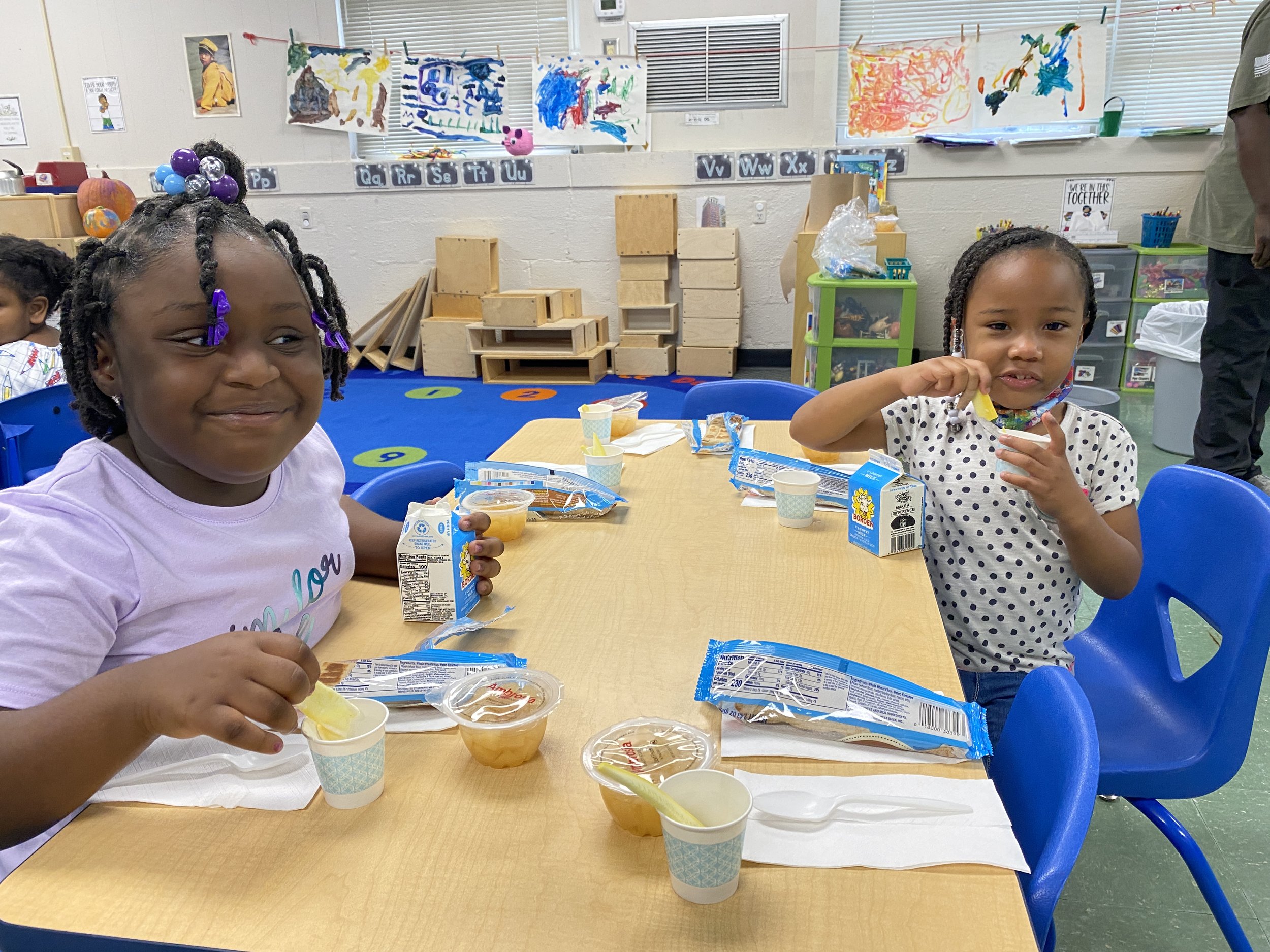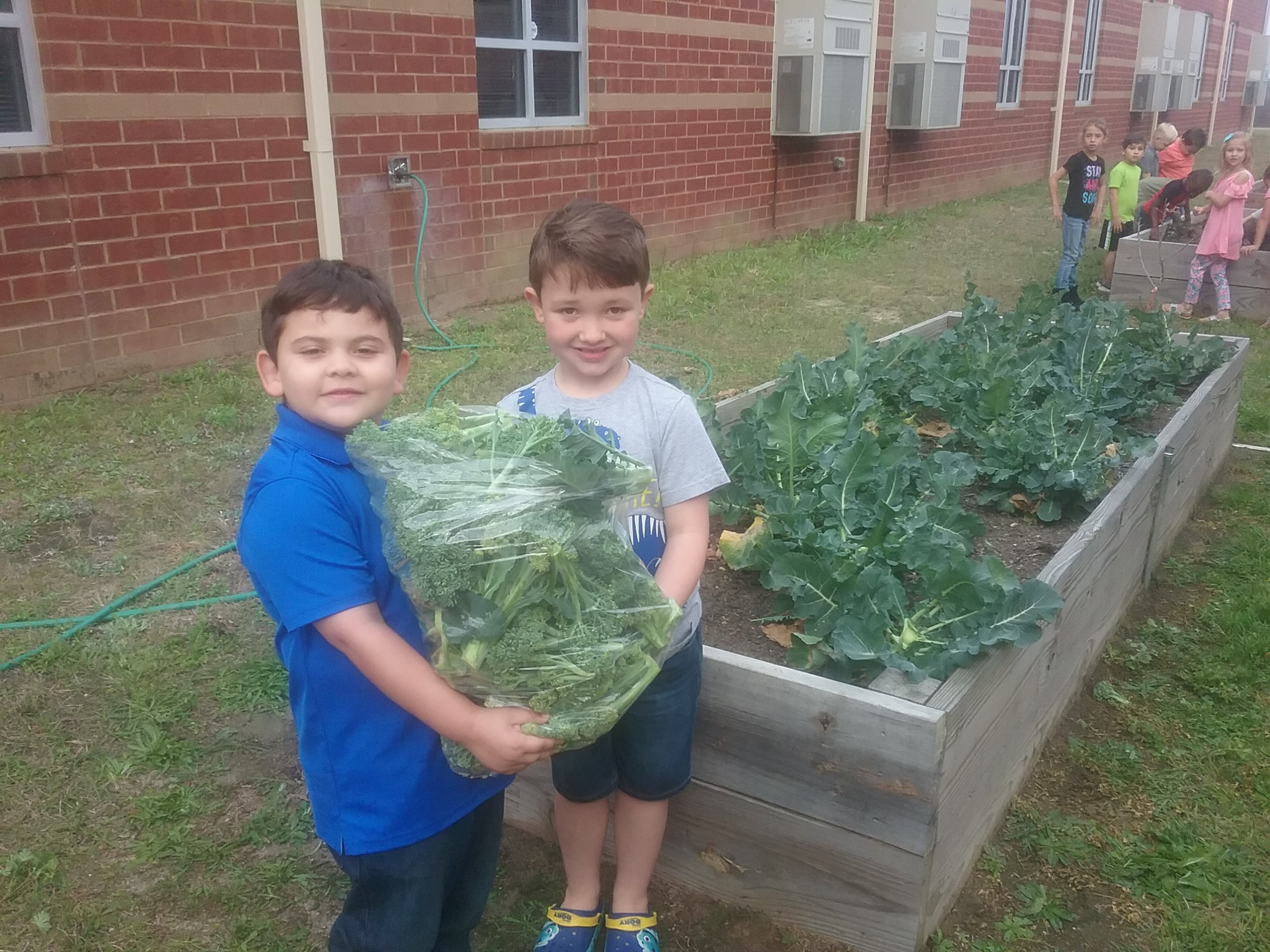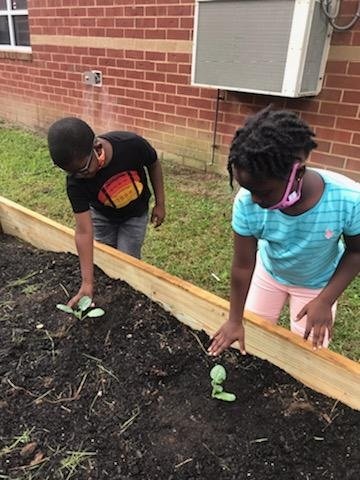By Kimberly Della Donna
Kimberly Della Donna is the Farm to School Director at Georgia Organics
Georgia Organics and the Georgia Department of Public Health (GA DPH) have partnered to establish the Farm to School Innovation Mini Grants Program. These funds support farm to school initiatives that:
Increase access to local, fresh, organically grown food,
Include culturally responsive food and education,
Increase local food procurement,
And/or benefit Georgia-certified organic farmers in other ways.
To learn more about the Farm to School Innovation Mini-Grant Program click here.
To financially support the Farm to School Innovation Mini-Grant, click here
We are pleased to highlight Mini-Grant Awardee:
Douglas County School System (DCSS)
DCCS Training and Development Manager Tempest Harris’ work includes championing an award-winning, district-wide farm to school program. Last summer, she created and developed the Farm to School Expo initiative with the help of internal and community stakeholders.
While DCCS had success for many years in infusing local foods in meals, promotions, and taste tests throughout the district, they recognized that not all schools in the district had comprehensive food education programs.
They developed a Farm to School Expo to address the inequity of that disparity and strengthen the farm to school program district-wide.
Students were invited to participate in the First Farm to School Expo where they could meet various farmers from their community, learn about what they produce, explore animals, bees, butterflies, and composting, meet community partners who support agriculture education, and enjoy taste tests of traditional Ghanian foods such as Bissap, Jollof, and Kelewele. Students also received a “take-home bag" loaded with educational materials, seeds, guidance for growing foods at home, information on local farmers' markets and local farmers', and food resources. The resources empowered students to increase their knowledge of food sourcing and access points for fresh food.
The exposure that the Expo offered administrators, staff, and students to the benefits of active farm to school programs increased interest in and demand for food and agriculture education in Douglas County Schools that currently don’t have those programs.
One attendee noted, “I would like to expose students to growing their own food. There are many agricultural paths that students can study to make our food better as well. Hopefully, students will see the importance of farming to our world.” With so many community partners and farmers involved in the event, community support seems ripe to satisfy the demand. In the words of one attendee “This was a wonderful experience for both the students and myself.”
To learn more about Douglas County School Systems, visit dcssga.org/departments/school_nutrition and follow them on social media and at facebook.com/ douglascountyschools.






















